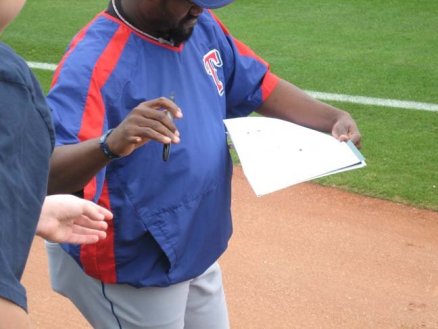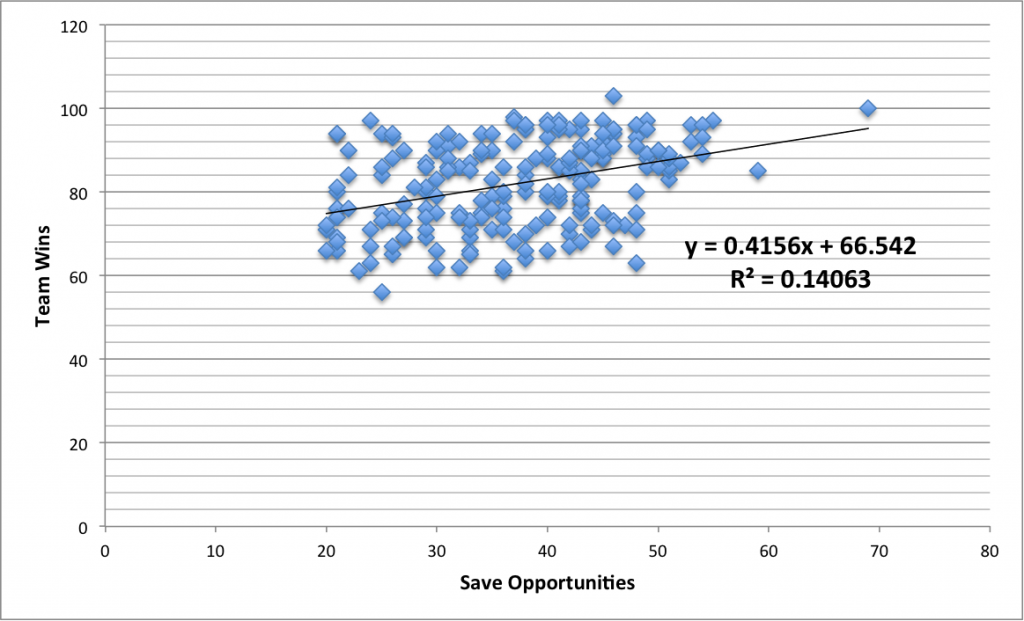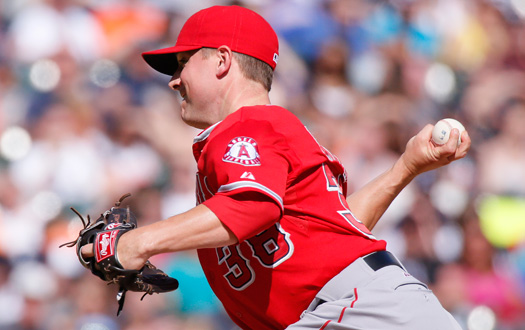Do more team wins mean more save opportunities?
Before I decided to answer this question, I assumed that they didn’t.
My Guess
In my head I had a cognitive bias of closers in the 2,000s that racked up saves, but were on teams that were never in contention; In 2000 Antonio Alfonseca (i.e. the Six Fingered Man) led the MLB with 45 saves on a Marlins team tat went 79-82; Joakim Soria was third in baseball with 42 saves on a Royals team that finished with a 75-87 record in 2008.

With the extra drag he could put on the ball with his sixth finger, you’d think Antonion Alfonseca (above) would have been able throw a killer change up.
Beyond my selective memory, with further thought about characteristics of winning teams, my assumption was reinforced further.
Think about it this way. 90 to 100 win teams have stellar run differentials. We’ve all been there as Fantasy Baseball owners. We pull up our team page, on our respective websites host, and we see that Mariano Rivera (i.e. a closer like Rivera who plays for a frontrunner) pitched one inning, with two strikeouts, and no save, because the Yankees (i.e. a frontrunner) were up 7-2 in the ninth inning.
Another characteristic of a winning team, and reason to reinforce my assumption about save opportunities and team wins, are strong bullpens. For example, the Yankees are up 5-2 in the bottom of the ninth, Mariano Rivera has already pitched three times that week, but, as evidence from the previous example, that doesn’t necessarily mean he’s gotten three saves that week, and Joe Girardi/Joe Torre thinks to himself, “Lets give Mo a break, and put in David Robertson/Rafael Soriano/Joba Chamberlain/Fill-In-The-Blank-Eighth-Inning-Man.
The Results
My study looked at all relievers from 2006 to 2013 who had more than 20 save opportunities.
20 save opportunities is high enough of a threshold to ensure that a reliever was a teams primary closer, and not just middle reliever who had a few save opportunities here and there, which would skew the results: bad, bad.
Obviously there were closers who had 20+ save opportunities, got hurt/performed poorly, lost his job, and had a teammate accrue an additional 20+ save opportunities. So really the original closer, absent of injury/poor performance, would have had 40+ save opportunities. Ideally we would like to look at closers who started and finished the season as a teams closer, but I was unable to find a resource that had this information, or a proxy to signify the like.
And why save opportunities? If we looked at saves, and not save opportunities, the skill of the closer would come into play and affect the results (i.e. Carlos Marmol would ruin this whole study): bad, bad, bad.
For the pool of relief pitchers that had 20+ save opportunities from 2006 to 2013, I ran a correlation between their save opportunities and their team’s wins and found that there is a correlation of .375, which is a moderate, positive relationship, and a much stronger relationship than I thought would be found.

Conclusions & Takeaways
While there is a strong relationship between save opportunities and team wins, further research needs to be done to look at the correlation between run differential and save opportunities. I’m still not convinced that there isn’t an effect when it comes to closers that are on good teams, but the closer’s team is so good that he is always in games when his team is up by more than three runs.
It still remains that there is a positive relationship between the amount of save opportunities and the amount of team wins. The next time a closer on a division leader gets hurt or struggles to the point that he loses his job, his replacement may be worth much more FAAB dollars than you realize (i.e. after I did this research, I kicked myself that I didn’t bid more on Joe Smith when he was available).
Devin Jordan is obsessed with statistical analysis, non-fiction literature, and electronic music. If you enjoyed reading him, follow him on Twitter @devinjjordan.
























